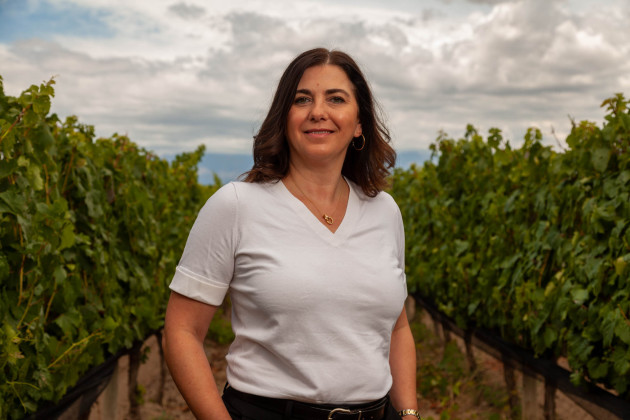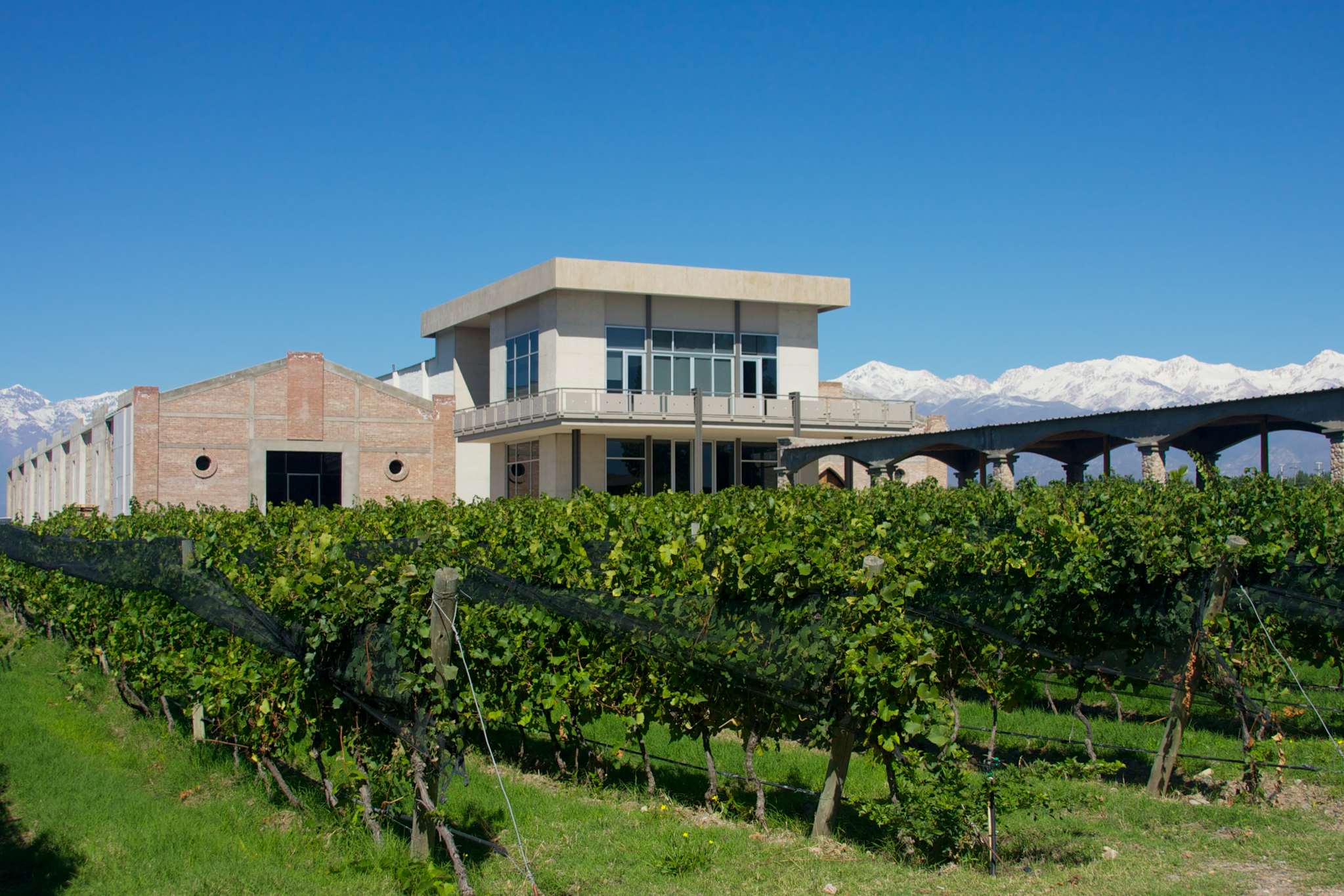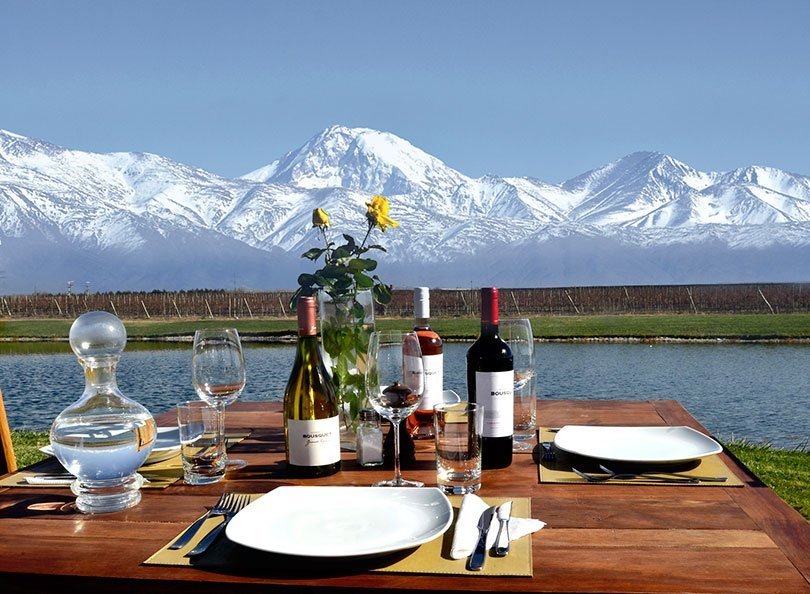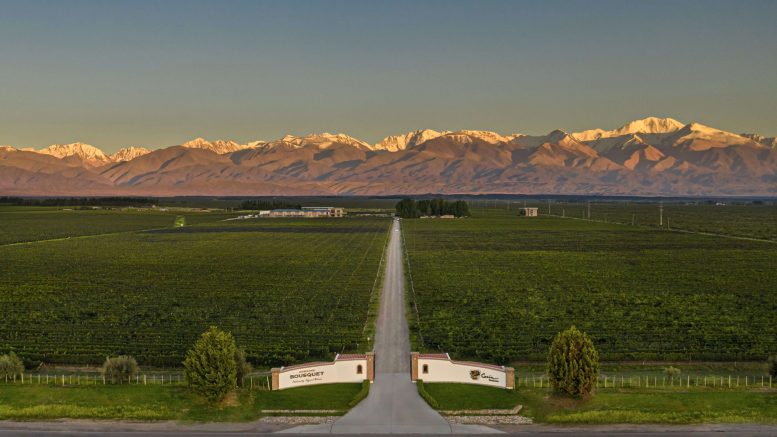“Na Argentina e no Brasil existe um preconceito muito grande quanto à qualidade dos vinhos orgânicos, o que não acontece no resto do mundo…”
Anne Bousquet é CEO e co-fundadora da vinícola Domaine Bousquet, presidente e co-fundadora da empresa Origins Organic Imports. Bousquet é economista pela l’Université de Toulouse, com mestrado em economia aplicada pela Saint Cloud State University.
Domaine Bousquet está entre as 20 vinícolas argentinas que mais exportam, focada na produção de vinhos orgânicos.

Anne Bousquet, CEO e co-fundadora da vinícola Domaine Bousquet
AgriBrasilis – Vinhos orgânicos podem ser considerados “vinhos finos”?
Anne Bousquet – Na Argentina e no Brasil existe um preconceito muito grande sobre a qualidade dos vinhos orgânicos, o que não acontece no resto do mundo. Nossa produção é de alto padrão, com qualidade respaldada pelas principais publicações especializadas no setor e por críticos internacionais. O vinho orgânico possui potencial para participar dos rankings ao lado dos melhores vinhos do Velho e do Novo Mundo, sejam convencionais ou orgânicos.
AgriBrasilis – Porquê produzir vinhos orgânicos?
Anne Bousquet – A produção de vinhos orgânicos é necessária porque é preciso cuidar do futuro. Os problemas causados pelas alterações climáticas são nítidos e repercutem na nossa matéria-prima, e, consequentemente, no produto final. Para além do impacto ambiental, também é importante considerar a sustentabilidade econômica e o contexto social de cada organização para que a produção seja possível.
AgriBrasilis – A senhora disse que a umidade é o inimigo número um dos vinhos orgânicos. Por quê?
Anne Bousquet – A umidade gera condições favoráveis para o desenvolvimento de microrganismos causadores de doenças e podridões na planta e em seus frutos. Em um clima úmido, como o da França, por exemplo, atingir o ponto certo de maturação com uvas saudáveis é muito complicado. A umidade e as chuvas podem fazer com que a colheita seja perdida.
AgriBrasilis – Quais características climáticas definem o “terroir” dos vinhos da região de Mendoza?
Anne Bousquet – As condições climáticas e de solo são ideais para o cultivo de videiras orgânicas. Trata-se de uma região fria devido à sua altitude, de clima desértico e baixo índice pluviométrico. Mendoza também possui grande amplitude térmica entre o dia e a noite, o que permite que a uva alcance um bom ponto de maturação, com boa acidez. Essa região é reconhecida pela produção de vinhos de alta qualidade.

AgriBrasilis – Como é realizado o manejo fitossanitário e nutricional das videiras?
Anne Bousquet – Todas as nossas práticas são focadas na saúde do solo. Utilizamos processos naturais, como a compostagem, que contribui para adição de matéria orgânica, nutrição, aumento na microbiologia e na estrutura do solo.
Também reduzimos o preparo do solo, o que permite o desenvolvimento de raízes e bactérias benéficas e reduz a necessidade de fertilizantes. Outras práticas são a mobilização mínima, o pastoreio rotativo e o uso de culturas de cobertura. Essas práticas ajudam a reduzir a erosão e a perda de matéria orgânica do solo, aumentando a sua biodiversidade e fertilidade, além de criar um ecossistema mais harmonioso e nutritivo. O resultado é a obtenção de plantas mais saudáveis, que não precisam de pesticidas.
AgriBrasilis – A adega possui certificação regenerativa. O que isso significa?
Anne Bousquet – Nós possuímos a certificação de agricultura biodinâmica (Demeter) e regenerativa (ROC), que nos certifica em três áreas: saúde do solo e manejo da terra, bem-estar animal e equidade entre agricultores e trabalhadores.
A viticultura regenerativa tenta recuperar e preservar a saúde dos solos que passaram por muitas intervenções humanas ao longo dos anos. Essa forma de produção resulta em uvas mais saudáveis, que produzem boas leveduras e, consequentemente, resultam em uma boa fermentação. Isso evita a necessidade de realizar “correções” durante o processo de produção do vinho.

AgriBrasilis – Quão representativo é o mercado de vinhos orgânicos?
Anne Bousquet – O volume comercializado de vinhos orgânicos têm apresentado crescimento na maioria dos mercados, com aumento global de 5% por ano entre 2017 e 2022.
Desde a pandemia, a procura por produtos orgânicos tem aumentado no mundo todo. Vivemos momentos de mudanças nos hábitos de consumo. O consumidor deseja produtos mais saudáveis e se questiona sobre os ingredientes, a origem e a forma como o produto foi feito.
AgriBrasilis – O vinho orgânico é mais caro?
Anne Bousquet – Não necessariamente. Videiras cultivadas organicamente possuem rendimentos mais baixos, mas, quando as práticas regenerativas e biodinâmicas são utilizadas ao longo de vários anos, as vinhas se tornam progressivamente mais saudáveis e produtivas.
LEIA MAIS:

